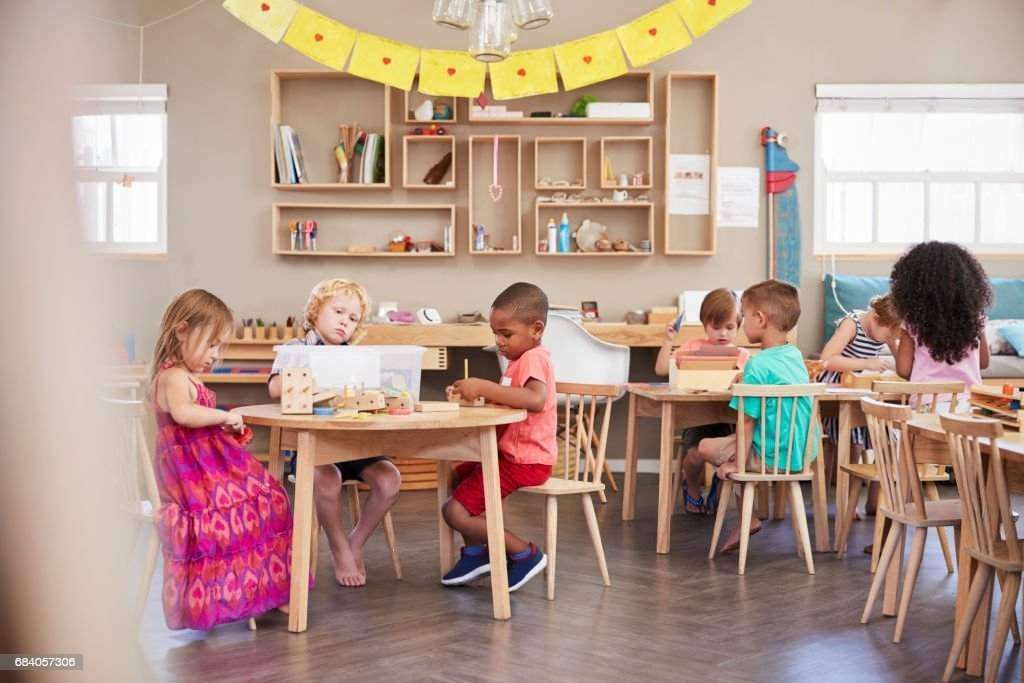
Are you passionate about transforming education and nurturing young minds in a unique way? Embarking on the journey of setting up a Montessori school might be the perfect venture for you. Dr. Maria Montessori’s educational approach places children at the Centre of their learning experience, promoting curiosity, independence, and hands-on exploration. If you’re considering establishing a Montessori school, here are the key factors and requirements to keep in mind:
1. Embrace the Montessori Philosophy and Training
To create an authentic Montessori school, it’s essential to deeply understand the Montessori philosophy. This child-centred approach requires educators and administrators to grasp the principles and methodologies. Teachers should undergo thorough Montessori training, which varies in duration and depth, ensuring they are equipped to guide students effectively.
2. Craft a Thoughtful Curriculum and Gather Materials
At the heart of Montessori, classrooms are carefully curated materials that encourage experiential learning. Acquiring or developing appropriate Montessori materials supports exploration and discovery. These materials also enable hands-on engagement and cater to various developmental stages.
3. Design an Inviting Physical Space
Montessori classrooms are intentionally designed to facilitate independent learning. An open, organised environment is key, allowing for various learning stations and activities. Consider how the space can accommodate mixed-age groupings and provide ample room for exploration.
4. Embrace Mixed-Age Groupings
One hallmark of Montessori education is the integration of mixed-age groups. This setup allows older students to mentor younger ones, fostering a sense of community and collaboration. It also enables students to progress at their own pace and learn from their peers.
5. Priorities Low Teacher-Student Ratios
To provide personalised guidance and attention, Montessori classrooms require lower teacher-student ratios. This ensures that educators can tailor their approach to each child’s needs and progress.
6. Seek Qualified Educators
Teachers should not only have Montessori training but also possess a deep understanding of child development and the Montessori method. Hiring educators who are aligned with these principles is vital to creating a successful Montessori learning environment.
7. Obtain Licensing and Accreditation
Depending on your location, you’ll need to navigate the process of obtaining the necessary licences and accreditations to operate a school. Montessori-specific accreditation agencies can provide guidance to ensure your school adheres to Montessori principles.
8. Foster Parental Engagement
Montessori education thrives when there is a strong partnership between educators and parents. Effective communication and collaboration with parents contribute to a child’s overall success and growth.
9. Develop a Financial Plan
Setting up and maintaining a Montessori school requires careful financial planning. Consider expenses for materials, teacher salaries, rent or building costs, and other operational needs.
10. Engage with the Community
Building connections within the local community can enhance your Montessori school’s success. Hosting informational sessions and open houses can generate interest and support from families who share your educational vision.
11. Create a Marketing Strategy
Promote your Montessori school to attract families who resonate with the Montessori philosophy. Clearly communicate the unique benefits your school offers and how it aligns with their children’s educational needs.
12. Invest in Professional Development
Encourage continuous professional development for your staff. Staying updated on best practices and the latest research in education and child development ensures your educators provide the highest quality learning experiences.
As you embark on the journey of creating a Montessori school, remember that it’s a commitment to a specialised approach that nurtures individual growth and curiosity. Immerse yourself in the philosophy, seek guidance from experienced Montessori educators, and lay a strong foundation for a school that empowers children to become lifelong learners.
At X&Y Furniture, we understand the importance of creating an environment that supports the Montessori philosophy. Our furniture solutions are designed to foster exploration, independence, and collaboration in Montessori classrooms. Contact us to explore how our furniture can enhance your Montessori school’s learning spaces.




